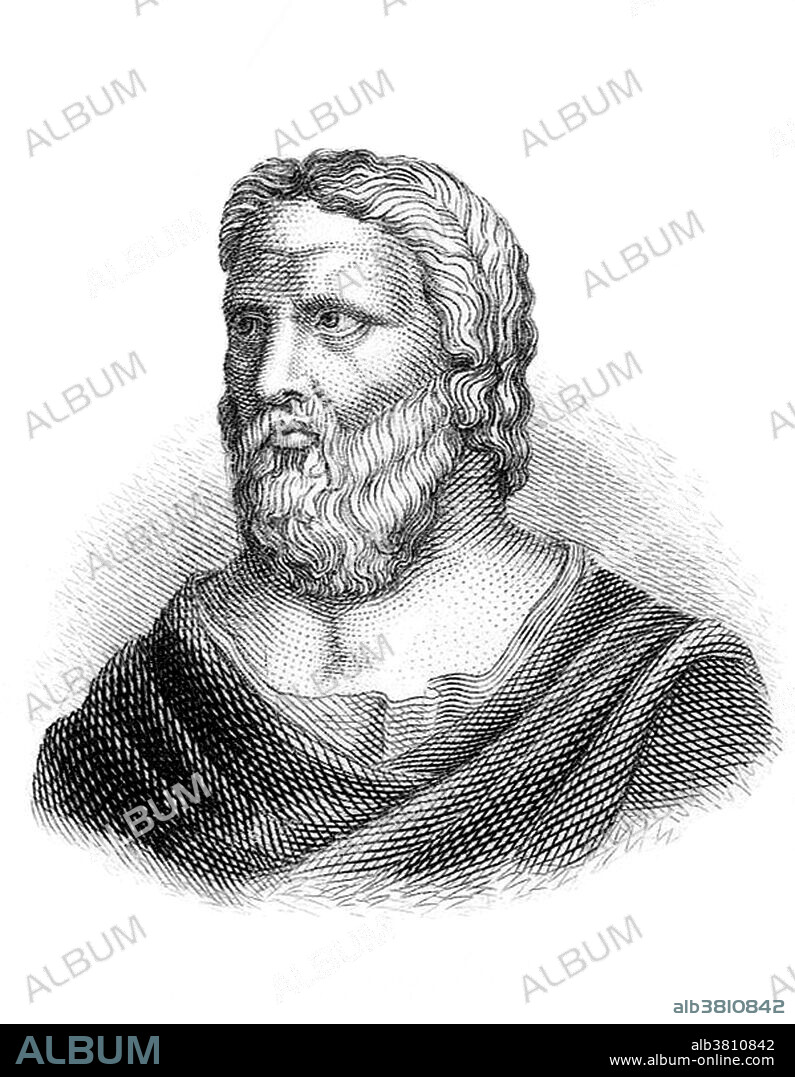alb3810842
Heraclitus of Ephesus, Ancient Greek Philosopher

|
Ajouter à une autre Lightbox |
|
Ajouter à une autre Lightbox |



Avez-vous déjà un compte? S'identifier
Vous n'avez pas de compte ? S'inscrire
Acheter cette image

Titre:
Heraclitus of Ephesus, Ancient Greek Philosopher
Légende:
Voir la traduction automatique
Heraclitus of Ephesus (535 - 475 BC) was a pre-Socratic Greek philosopher. Little is known about his early life and education, but he regarded himself as self-taught and a pioneer of wisdom. He was called "The Obscure" and the "Weeping Philosopher". He is famous for his insistence on ever-present change in the universe, as stated in the famous saying, "No man ever steps in the same river twice". He believed in the unity of opposites, stating that "the path up and down are one and the same", all existing entities being characterized by pairs of contrary properties. Like most pre-Socratics, his writings survive only in fragments quoted by other authors. His life as a philosopher was interrupted by dropsy. The physicians he consulted were unable to prescribe a cure. He treated himself with a liniment of cow manure and baking in the sun, believing that this method would remove the fluid. After a day of treatment he died and was interred in the marketplace. Engraving by J.W. Cook, 1825.
Crédit:
Album / NYPL/Science Source
Autorisations:
Modèle: Non - Propriété: Non
Questions sur les droits?
Questions sur les droits?
Taille de l'image:
3259 x 4200 px | 39.2 MB
Taille d'impression:
27.6 x 35.6 cm | 10.9 x 14.0 in (300 dpi)
Mots clés:
 Pinterest
Pinterest Twitter
Twitter Facebook
Facebook Copier le lien
Copier le lien Email
Email
